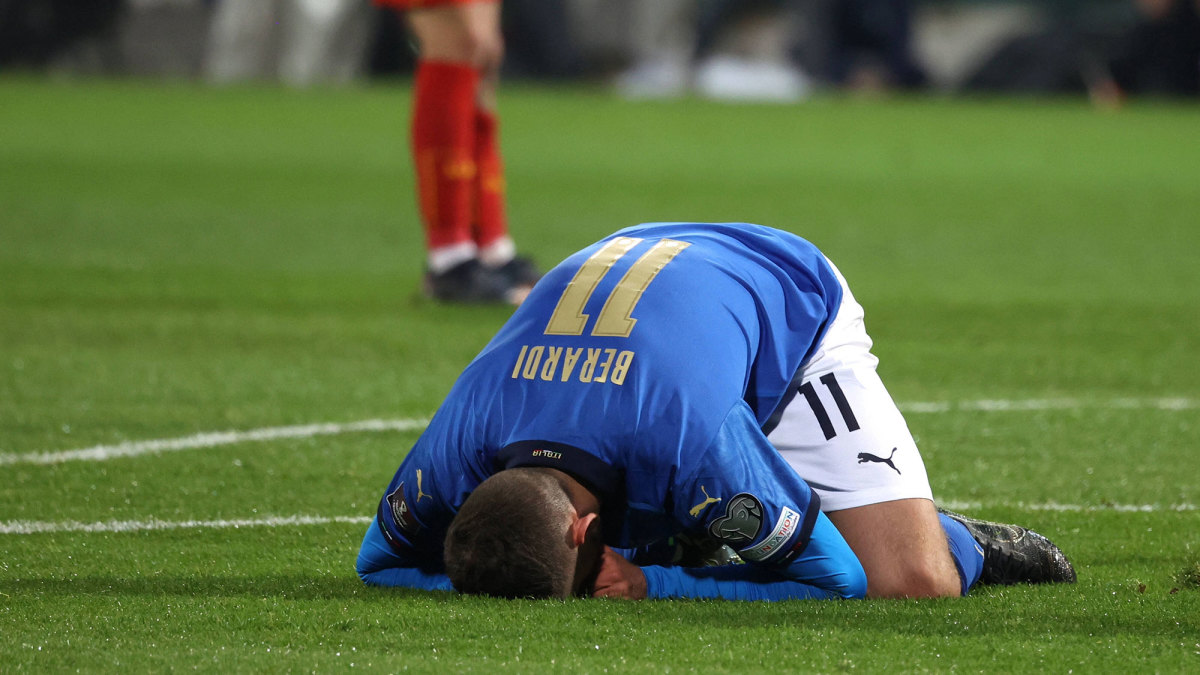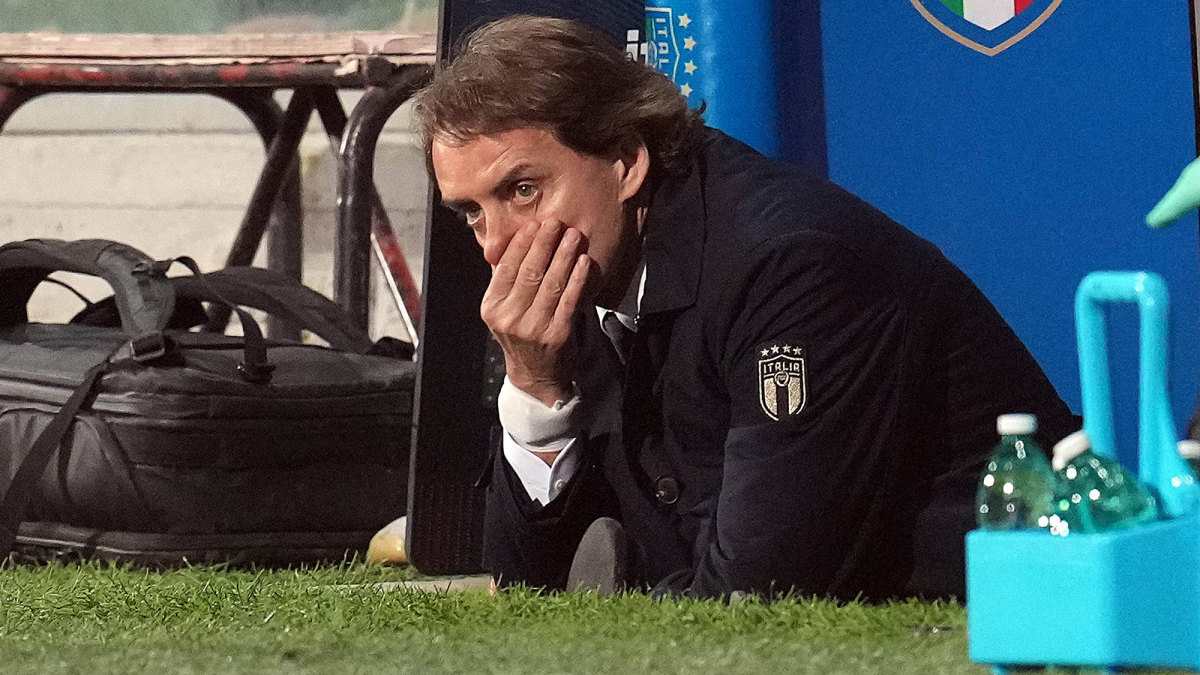Failure to Qualify for World Cup Better Represents Italy Than Euro Triumph
To an extent, Italy was unlucky. It had 32 to shots to four. Most nights, what it did would have been enough to beat North Macedonia. But it didn’t. It lost to Aleksandar Trajkovski’s injury-time goal and so, for the second World Cup in a row, Italy has failed to qualify. But to speak merely of misfortune is slightly to miss the point. Misfortune can happen in a one-off game; the point is that Italy became vulnerable to that kind of bad luck by failing to win its group and having to take part in the playoff.
Giorgio Chiellini spoke of a “great void” and there is no doubt that this is a major embarrassment for Italy. After missing out on the 1958 World Cup, it qualified for 14 tournaments in a row, but has now missed out on the last two. Italy has not played in a World Cup knockout game since winning the World Cup in 2006. By the time the next World Cup rolls around in ’26, it will have gone 20 years in which its only victory at a World Cup was against England in ’14. Add in the fact that Serie A is in retreat, with no Italian side in the quarterfinals of the Champions League and that there has not been an Italian winner since Inter in ’11, and the picture seems bleak.
Yet Italy won the Euros last summer, reached the final in 2012 and went out on penalties in the quarterfinal in ’16. It’s too simplistic to portray this simply as a matter of decline.

“Last summer was the most beautiful joy; now comes the greatest disappointment,” said Italy’s manager Roberto Mancini. “It is not easy to think of other things. I am very sorry for the boys: I love them much more tonight than in July.”
Perhaps that success in the Euros demands closer scrutiny in the light of what has followed. Breezing by Turkey and Switzerland on home soil in the group was perhaps not the achievement it seemed. Italy then ground out wins against Austria and Belgium before penalty-shootout successes against Spain and England. It was a success rooted in resilience and organization; early talk of Mancini fashioning a new, more open Italy was perhaps misplaced. But there is nothing wrong or unusual with that: Most teams who win major tournaments require some luck along the way; character and discipline tends to count for more than skill.
The lesson, perhaps, is that major tournaments offer very brief snapshots and that it’s dangerous to read too much into them. But perhaps there is an issue that, for all the modernization Mancini has brought, it is more effective against better teams, or when Italy takes an early lead. Italy went unbeaten through qualifying but draws at home against Switzerland and Bulgaria and away against Switzerland and Northern Ireland meant it finished two points behind the Swiss.
What was striking on Thursday was how rapidly belief drained away. Once a few chances had been missed, there was an almost palpable lack of conviction. Defeat to North Macedonia may have been a shock in the broader sense, but from about the half-hour mark it felt palpable. Perhaps some criticism is due toward Mancini (it’s always worth remembering that, in 2012, about half an hour before his Manchester City side won the league title by coming from behind to beat QPR 3–2, he was stalking the touchline shouting, “ F––– you” at each of his players).

But nobody thinks he is to blame in the way his deeply uninspiring predecessor Gian Piero Ventura was to blame for the failure to reach the 2018 World Cup. The sense, rather, has been that he has built on what Antonio Conte had done, moving Italy towards a pressing game, making it more proactive.
The problem, perhaps, is a dearth of players. France, Spain, Germany and even England have radically overhauled their structures of youth development and have reaped the benefit; Italy’s squad featured one player under the age of 22. The iconic players remain Chiellini at 37 and Leonardo Bonucci at 34. Lorenzo Insigne, Ciro Immobile and Federico Chiesa had good Euros, but Chiesa is injured and the other two are over 30—and, frankly, there’s a reason why they play for Lazio and Napoli rather than regular Champions League challengers.
There is a greater randomness to international football than the club game, which may be why so often the teams who prosper are those that most successfully reduce risk. But still, quality matters, and for all the resilience Italy demonstrated last summer, it still lacks the quality to perform consistently.
More Soccer Coverage:
